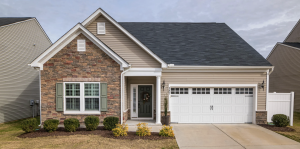Check your HOA’s rules and paperwork first to know who should fix what. Take pictures of problems, get repair quotes, and keep track of all talks with the HOA. Send repair requests the right way and always put things in writing to protect yourself. If you can’t agree, try working with a mediator – it’s often faster than going to court. Know your rights and what you can do when things go wrong – this helps you deal with tricky HOA repair issues.
Key Takeaways
- Document all maintenance issues with photos, dates, and written communication records to build a strong case for your dispute.
- Review HOA governing documents carefully to understand specific maintenance responsibilities before escalating any disputes.
- Submit formal maintenance requests through proper channels and maintain a detailed log of all follow-up communications.
- Consider mediation or arbitration before pursuing legal action, as these alternatives often provide faster and cost-effective solutions.
- Join HOA meetings regularly and engage with board members to establish relationships that facilitate better dispute resolution.
Understanding Your HOA Maintenance Responsibilities
Knowing who fixes what in your HOA helps avoid problems between neighbors. The HOA’s basic rules split the upkeep work between the group and each homeowner. You’ll find these details in the community’s official papers, like the rules, guidelines, and membership terms.
Smart homeowners take time to read these papers to learn who takes care of outdoor items, shared spaces, and home interiors. Usually, the HOA looks after spaces everyone uses and major building parts, while homeowners handle their own indoor repairs.
If you’re unsure about who should fix something, ask your HOA board or a lawyer before it becomes a bigger issue.
Documenting the Maintenance Issue
When maintenance problems come up in an HOA community, good record-keeping helps solve disagreements. Homeowners need to keep detailed records by tracking each problem carefully. This helps protect them and makes it easier to talk with the HOA board.
| Documentation Element | Required Action |
| Date and Time | Write down when each problem happens |
| Photo Evidence | Take clear pictures of problems |
| Communication Log | Keep all emails and letters |
| Repair Estimates | Get costs from repair experts |
| Witness Statements | Get notes from others who saw the problem |
This organized way of keeping records builds a strong case during disputes and shows that the homeowner follows the community’s rules for upkeep.
Reviewing Your HOA’s Governing Documents
Start by reading your HOA’s key documents to handle any upkeep disagreements. Look through the CC&Rs (rules about what owners can and can’t do), bylaws, and other HOA rules to see who’s supposed to take care of what.
Focus on parts that talk about property upkeep, shared spaces, and how to solve problems. This helps figure out if the HOA or the homeowner needs to fix the issue.
Make sure to check for any changes to the original rules, since these might affect who’s responsible for maintenance now.
Communication Strategies With HOA Management
Effective communication between homeowners and HOA management requires adherence to specific protocols and best practices.
Maintaining thorough written records of all maintenance-related correspondence, utilizing designated communication channels, and participating in scheduled face-to-face meetings constitute crucial elements of successful HOA dispute resolution.
These communication strategies establish clear documentation trails, promote transparency, and facilitate more productive interactions between parties involved in maintenance disputes.
Document Everything in Writing
Strong paperwork helps solve HOA maintenance problems. Homeowners need to keep good records of all repairs, talks, and letters between them and the HOA board.
| Key Papers | Why You Need Them | How Long to Keep |
| Written Requests | Shows Proof | 7 years |
| Photos/Videos | Shows Evidence | Until Issue Ends |
| Letters & Emails | Shows Timeline | Forever |
These records show what happened and when it happened. They prove the homeowner did their part and help if the case goes to court. Keep both paper and computer copies of everything to make sure you can find them when needed.
Clear Communication Channels Matter
Good communication is key when dealing with HOA maintenance problems. Homeowners need to set up and keep several ways to reach their HOA board and property managers. These can include email, certified mail, and the HOA’s official online systems.
To get things done right, homeowners must follow the contact rules spelled out in their HOA documents. It’s important to learn these rules and use the right steps for asking for repairs, checking on their progress, and raising concerns if needed.
Using proper channels and keeping a businesslike approach helps make sure maintenance issues get the attention they need within the HOA’s system.
Schedule Face-to-Face Meetings Regularly
Meeting in person regularly helps homeowners and HOA managers solve maintenance problems better.
These meetings help both sides understand each other and fix issues in the community quickly.
- Set up meetings every month or every three months to keep communication open
- Write down everything that’s talked about and decided in each meeting
- Make a list of topics to cover, including both old and new maintenance issues
- When there’s a specific problem, walk through the property as part of the meeting
This organized way of meeting keeps everything open and honest, helps build trust, and creates a record of how maintenance problems are being handled in the HOA.
Alternative Dispute Resolution Options
Before going to court, which can be very expensive, homeowners and HOA boards should look into other ways to settle their disputes about maintenance issues.
One option is mediation, where a fair outsider helps both sides talk and work toward finding an answer they can both accept.
When mediation doesn’t work, binding arbitration is another choice that’s more structured than going to court.
In arbitration, someone picked to be the judge looks at the facts and makes a final choice that everyone must follow.
This way usually takes less time and money than going to court, and helps keep good relationships between neighbors.
Legal Rights and Remedies for Homeowners
Homeowners in HOA communities have specific rights and protections under state laws and their association’s rules.
When problems about upkeep come up, owners can take several steps to defend their rights.
- Making an official report to state offices that watch over HOAs
- Taking legal action to defend owner rights and get money for damages
- Asking a court to make the HOA fix problems or do needed repairs
- Using legal rights to hold back payments when the HOA doesn’t do its job
Knowing these rights helps owners stand up for themselves while still following HOA rules.
State laws often give owners more protection than what’s written in their HOA papers.
Preventing Future Maintenance Conflicts
Preventing maintenance conflicts with homeowners associations requires a systematic approach to documentation, participation, and communication.
Homeowners should maintain detailed records of all maintenance requests, repairs, and correspondence while regularly attending HOA meetings to stay informed of policies and upcoming projects.
Establishing open channels of communication with HOA board members and management companies during dispute-free periods creates a foundation of mutual understanding that can help mitigate future conflicts.
Document Everything Thoroughly
Good record-keeping helps stop and fix HOA upkeep problems. Clear records make it easier to solve disagreements and back up your case if you need to take legal steps.
- Write down every repair request in order by date, what it was for, and who you talked to.
- Take pictures and videos of your property before and after problems show up.
- Keep all written talks with HOA leaders, like emails, letters, and texts.
- Hold onto HOA rules, building guides, and upkeep rules that relate to your problem.
Attend Regular HOA Meetings
Going to HOA meetings helps catch problems early before they turn into bigger issues. When you show up regularly, you can speak up about what concerns you, help make decisions, and learn about upcoming repairs and rule changes.
Being there at meetings helps you get to know board members and property managers better, which makes it easier to talk about problems when they come up.
The meeting notes also keep track of what was talked about and decided, which can help if there are disagreements later. When you join in these meetings, you show you care about your neighborhood while looking after your own home.
Build Communication Channels Early
Building strong connections with HOA leaders should start before any problems come up. Getting to know them early helps stop disagreements and gets things fixed faster when issues happen.
Having good ways to talk and share feedback makes it easier to take care of the property.
- Keep an up-to-date list of board members, managers, and repair staff contacts
- Write down all repair needs and messages through proper HOA channels
- Join the HOA’s online tools, news updates, and emergency alerts
- Set up the best ways to reach property managers for both regular and urgent needs
These steps show you care about the community while protecting your rights through good record-keeping and clear ways to communicate.
Frequently Asked Questions
Can HOAS Charge Special Assessments for Maintenance Without Homeowner Approval?
HOAs can usually make homeowners pay extra fees for needed repairs and upkeep without asking each owner first. However, the HOA’s rules might give owners the right to vote on big spending projects.
What Happens if Neighboring Units’ Maintenance Issues Affect My Property?
If problems from nearby units damage your property, take photos and write down what happened. Tell your HOA right away. The HOA will need to figure out who is responsible for fixing the problems and make sure repairs happen based on community rules and local laws.
Are HOA Board Members Personally Liable for Maintenance Negligence?
HOA board members usually won’t face personal blame when they make honest decisions, but they can be held responsible if they deliberately ignore their duties or show extreme carelessness in maintaining the property.
How Often Can HOAS Increase Maintenance Fees Without Community Voting?
HOAs can usually raise fees once a year without asking residents to vote. Their rule book sets limits on how much fees can go up and explains how maintenance money should be spent. If the fee increase is very large, the HOA may need to get approval from homeowners first, depending on what their rules say.
Can Homeowners Withhold HOA Dues During Unresolved Maintenance Disputes?
Holding back HOA payments during maintenance fights is usually against the rules. You need to keep paying your fees even while working to fix maintenance problems through talks or the courts.
Conclusion
Resolving HOA maintenance disputes effectively requires a step-by-step approach based on good records, understanding your rights, and using the right communication channels. Homeowners strengthen their position by keeping detailed documentation and knowing their HOA’s governing rules. If you’re facing complex HOA issues, Ace California Law can help protect your interests while maintaining positive community relationships. When disputes can’t be settled directly, options like mediation or legal action offer clear paths to resolution, making sure your property rights stay protected under state laws.






